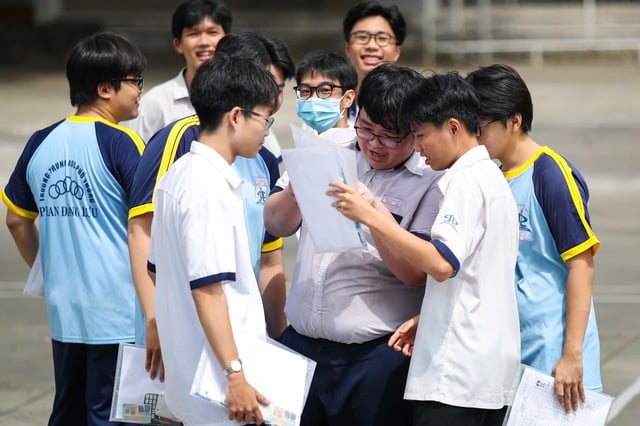
Candidates for high school graduation exam in 2025
Photo: Nhat Thinh
High school graduation exam shifts from rote learning to application and critical thinking
The 2024-2025 school year marks an important milestone as the 2018 General Education Program completes its implementation cycle. According to Dr Scott McDonald, Faculty of Business, RMIT University Vietnam, the high school graduation exam has undergone significant changes, from a rigid, uniform model to a more flexible one. Allowing students to choose subjects that match their strengths is considered a positive step forward, opening up a personalized approach to an exam that was previously completely standardized.
“The introduction of elective subjects is a significant improvement, allowing students to develop their strengths and choose the areas in which they are most confident,” Mr. Scott McDonald emphasized.
Sharing the same view, Mr. Melvin Fernando, Senior Manager of Careers and Industry Relations at RMIT Vietnam, commented that this reform has shifted the focus from rote learning to applied knowledge and critical thinking. "Students are expected to demonstrate their ability to solve practical problems, with the exam format changing significantly in subjects such as mathematics and literature," Mr. Melvin Fernando explained. According to this expert, although these changes make the exam more complicated, they also help to assess students' abilities more substantially.
Proposal to reduce multiple choice questions
However, experts also made suggestions to help improve university entrance exams in Vietnam.
“Most of us memorize information for a test, and then forget it a few weeks later,” Dr. McDonald asks. “So what exactly are these tests measuring?” He suggests a more balanced approach by reducing multiple-choice questions and replacing them with assessments based on real-life situations, analysis, and problem-solving exercises. He says high school needs to focus more on developing skills that are fundamental to college and work, especially critical thinking and problem-solving.
“These skills are often overlooked in traditional exams, but are critical to success in college and in the workplace,” McDonald said. “If we shift the focus from rote learning to application, exams will actually better prepare students for the challenges ahead.”
Meanwhile, Mr. Fernando proposed expanding the form of assessment, reducing pressure with regular tests during the school year, integrating career-focused subjects such as life skills, digital skills or entrepreneurship, and investing more in students' mental health. According to Mr. Fernando, these changes not only reflect the diversity of students' abilities but also help reduce the heavy pressure from a single decisive exam.
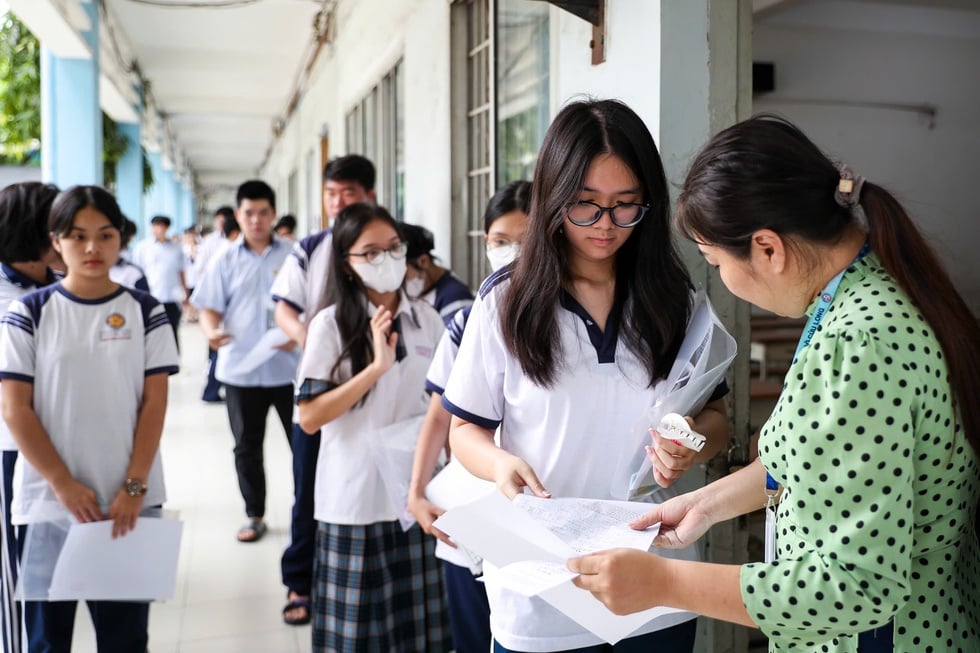
The 2025 high school graduation exam has many innovations in the exam questions.
Photo: Nhat Thinh
Comprehensive assessment model should be gradually applied.
Dr Jung Woo Han, Acting Vice President, Academic and Teaching Excellence, Student Services and Education, RMIT Vietnam, gave an example from neighbouring countries, specifically South Korea. He cited the changing admissions model in this country, where more and more universities consider students’ achievements in a comprehensive way: from learning process, volunteer activities, projects, leadership roles to self-reflection essays in addition to traditional academic results. In addition, South Korea also has a separate admission quota for students with outstanding achievements in science , sports or arts. This diversification helps increase fairness in admissions, reduces pressure from a single exam and encourages students to develop comprehensively and engage with the community.
Dr Han recommends that Vietnam gradually adopt a holistic assessment model, especially in university admissions. He said there should be policies that recognize non-academic achievements and support schools in building student profiles across the entire school year. Expanding access to psychological counseling, especially in rural or underserved areas, is also essential to ensure that students are viewed as whole people, not just as candidates.
The high school graduation exam remains central to Vietnam’s education system, but it needs to transform as it looks to the future. An assessment system that recognizes achievement and unlocks potential will reflect students’ abilities and, more importantly, prepare them to adapt and thrive in a constantly changing world .
Source: https://thanhnien.vn/chuyen-gia-nuoc-ngoai-noi-ve-ky-thi-tot-nghiep-thpt-cua-viet-nam-185250702100725066.htm



![[Photo] General Secretary To Lam presents the 45-year Party membership badge to comrade Phan Dinh Trac](https://vphoto.vietnam.vn/thumb/1200x675/vietnam/resource/IMAGE/2025/8/28/e2f08c400e504e38ac694bc6142ac331)

![[Photo] The glorious 80-year journey of the Vietnam People's Army through the National Achievements Exhibition](https://vphoto.vietnam.vn/thumb/1200x675/vietnam/resource/IMAGE/2025/8/29/99ca4109cd594a45849a3afed749d46d)
![[Photo] Hanoi is ready to serve the occasion of the 80th National Day Celebration on September 2nd](https://vphoto.vietnam.vn/thumb/1200x675/vietnam/resource/IMAGE/2025/8/29/c838ac82931a4ab9ba58119b5e2c5ffe)
![[Photo] Prime Minister Pham Minh Chinh meets with Speaker of the New Zealand Parliament Gerry Brownlee](https://vphoto.vietnam.vn/thumb/1200x675/vietnam/resource/IMAGE/2025/8/28/cec2630220ec49efbb04030e664995db)

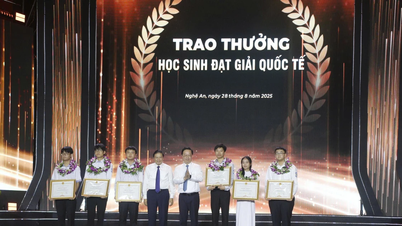

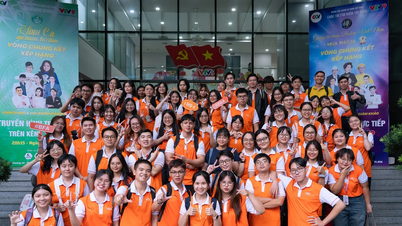










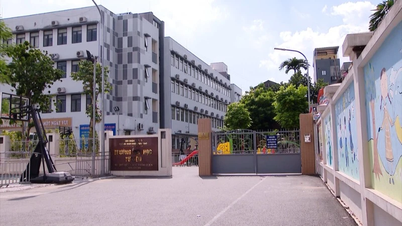



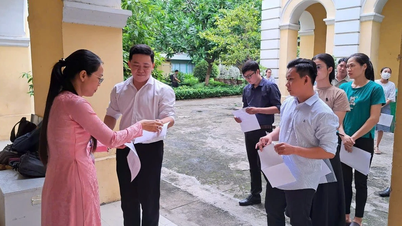











![[Photo] Red flag with yellow star flutters in France on National Day September 2](https://vphoto.vietnam.vn/thumb/1200x675/vietnam/resource/IMAGE/2025/8/28/f6fc12215220488bb859230b86b9cc12)


























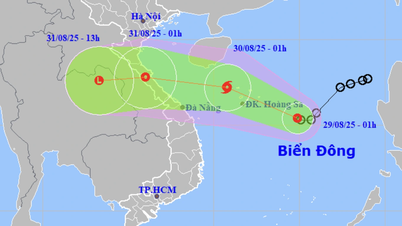
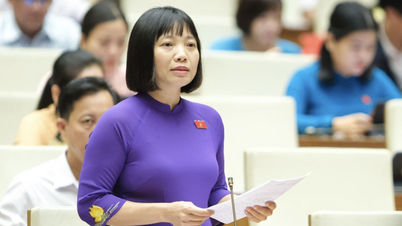



















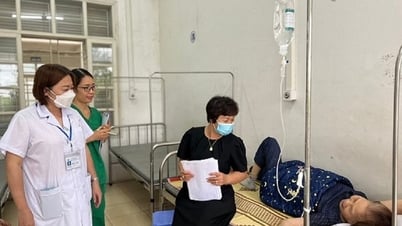

















Comment (0)